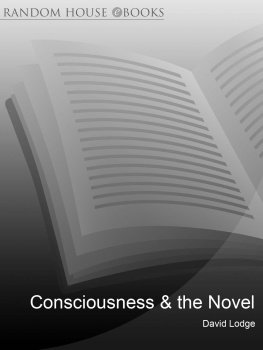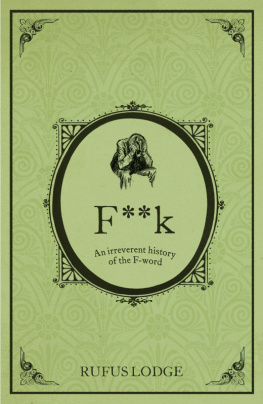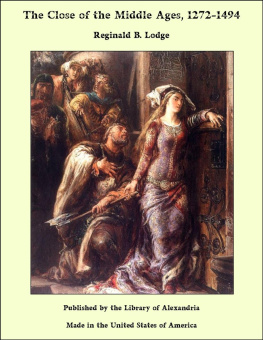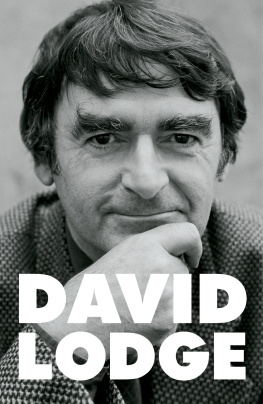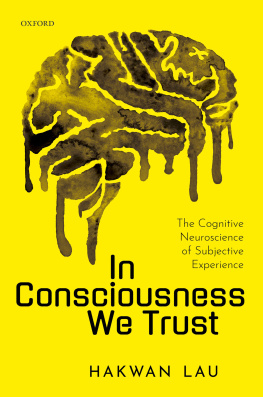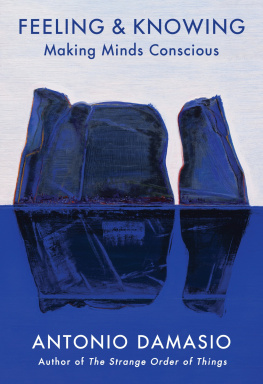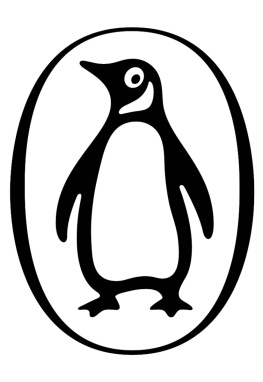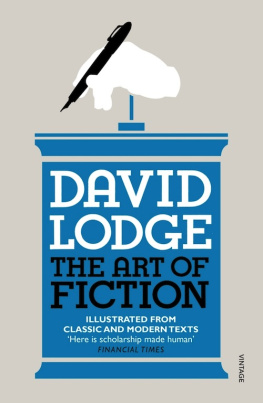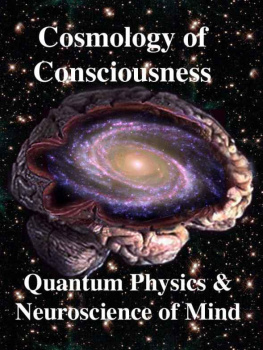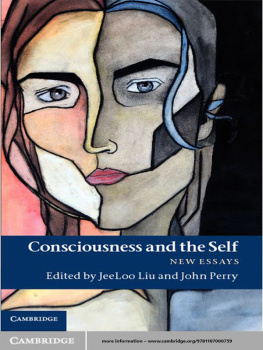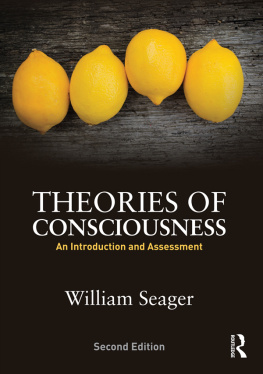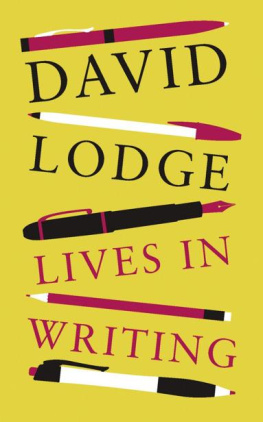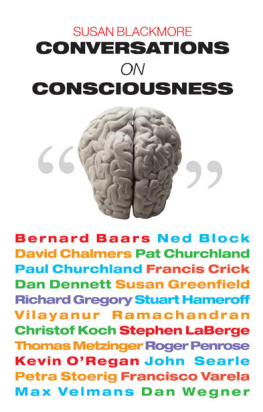Contents
Also by David Lodge
FICTION
The Picturegoers
Ginger, Youre Barmy
The British Museum is Falling Down
Out of the Shelter
Changing Places
How Far Can You Go?
Small World
Nice Work
Paradise News
Therapy
Home Truths
Thinks
CRITICISM
Language of Fiction
The Novelist at the Crossroads
The Modes of Modern Writing
Working with Structuralism
After Bakhtin
ESSAYS
Write on
The Art of Fiction
The Practice of Writing
DRAMA
The Writing Game
Home Truths
Consciousness & the Novel
Connected Essays
David Lodge

About the Book
Human consciousness, long the province of literature, has lately come in for a remapping even rediscovery by the natural sciences, driven by developments in Artificial Intelligence, neuroscience, and evolutionary biology. But as the richest record we have of human consciousness, literature, David Lodge suggests, may offer a kind of knowledge about this phenomenon that is complementary, not opposed, to scientific knowledge. Writing with characteristic wit and brio, and employing the insight and acumen of a skilled novelist and critic, Lodge here explores the representation of human consciousness in fiction (mainly English and American) in the light of recent investigations in cognitive science, neuroscience, and related disciplines. How, Lodge asks, does the novel represent consciousness? And how has this changed over time? In a series of interconnected essays, he pursues this question down various paths: how does the novel's method compare with that of other creative media such as film? How does the consciousness (and unconscious) of the creative writer do its work? And how can criticism infer the nature of this process through formal analysis? In essays on Charles Dickens, E.M. Forster, Evelyn Waugh, Kingsley and Martin Amis, Henry James, John Updike and Philip Roth, and in reflections on his own practice as a novelist, Lodge brings to light and to engaging life
chapter one
CONSCIOUSNESS & THE NOVEL
I CONSCIOUSNESS AND THE TWO CULTURES
IT WAS AN article in the English Catholic weekly, The Tablet, encountered in the summer of 1994, that first alerted me to a current intellectual debate about the nature of human consciousness, in which old philosophical issues were being refreshed by new input from the sciences. The article was a review of two books: Daniel Dennetts Consciousness Explained and Francis Cricks The Astonishing Hypothesis. Daniel Dennett is a philosopher turned cognitive scientist with a strong commitment to Artificial Intelligence. He says:
Human consciousness... can be best understood as the operation of a... virtual machine implemented in the parallel architecture of a brain that was not designed for any such activities. The powers of this virtual machine vastly enhance the underlying powers of the organic hardware on which it runs.
Francis Crick is the physicist and biochemist who with James Watson discovered the molecular structure of DNA. His book begins:
The Astonishing Hypothesis is that You, your joys and your sorrows, your memories and your ambitions, your sense of personal identity and free will, are in fact no more than the behaviour of a vast assembly of nerve cells and their associated molecules. As Lewis Carrolls Alice might have phrased it: Youre nothing but a pack of neurons.
The review article in The Tablet was by John Cornwell, a well-known journalist and writer on religious and scientific matters. It was titled From Soul to Software, and it brought out very clearly the challenge that the new scientific work on consciousness offered to the idea of human nature enshrined in the Judeo-Christian religious tradition. It seemed to me that this work offered an almost equally strong challenge to the humanist or Enlightenment idea of man on which the presentation of character in the novel is based. When I began to develop a novel of my own that would dramatise or narrativise this subject in terms of a relationship between two people, I made one of them an atheistic cognitive scientist and the other a novelist who is a lapsed but not entirely sceptical Catholic. What I propose to do here is to explore some thoughts about the novel as a literary form, about its historical development and about the ways that it uses to do what it does (Gertrude Steins phrasing), which were provoked by my exposure to the current debate about consciousness.
Let me begin with a passage from a contemporary novel, a literary novel (as it is called in the book trade), a highly and justly acclaimed novel, which has won at least two major prizes, the Orange Prize and the Guardian Fiction Prize: Fugitive Pieces by the Canadian writer Anne Michaels, published in 1997. The narrator, Jacob Beer, is speaking to a woman, Michaela, whom he has just met, about seeing the prematurely born child of his friends, Salman and Irena. This conversation is the beginning of a relationship between Jacob and Michaela:
I find myself telling Michaela a story thats a dozen years old, the story of Tomass birth, about my experience of his soul.
When Tomas was born, he was very premature. He weighed less than three pounds...
I had put on a gown, scrubbed my hands and arms to the elbows, and Irena led me in to see him. I saw what I can only call a soul, for it was not yet a self, caught in that almost transparent body. I have never before been so close to such palpable evidence of the spirit, so close to the almost invisible musselman whose eyes in the photos show the faint stain of a soul. Without breath, the evidence would vanish instantly. Tomas in his clear plastic womb, barely bigger than a hand.
Michaela has been looking down at the floor. Her hair, glossy and heavy and parted on the side, covers her face. Now she looks up. Suddenly Im embarrassed at having spoken so much.
Then she says: I dont know what the soul is. But I imagine that somehow our bodies surround what has always been.
The narrator, Jacob Beer, is middle-aged, of Jewish-Polish extraction. He was rescued from the horror of the Holocaust as a child, was brought up on a Greek island, and subsequently emigrated to Canada. He is obsessed with the history of the Holocaust, which explains the presence of the strange word musselman in the passage. It is derived from muselmann, the German word for Muslim, and is usually spelled Mussulman. According to the Oxford English Dictionary, this was a slang term in the death camps for a prisoner who was physically and mentally broken, who was, in the words of one source, a walking skeleton wrapped in a piece of blanket. That this inherently racist term was apparently adopted by the victims of the most appalling racist regime history has ever known is a paradox and an irony that I will not attempt to pursue here. The point made in the novel is that Jacob Beer, looking at the premature baby whose hold on life is so fragile, is reminded of photographs of those walking skeletons in the death camps in whose eyes alone there is the faintest vestige of an inner life. It is a powerful passage and was chosen by the Guardian as an extract to represent the novel when it was awarded the newspapers Fiction Prize. In fact I first read it in that context, at a time when I was doing my research into consciousness studies, and I was struck by how utterly different its language was from the books and articles I was reading.
The passage invokes, not metaphorically but literally, the religious idea of the individual immortal soul, which in some Platonist interpretations (evidently shared by Michaela) pre-exists human birth. And the soul or spirit (the words are more or less synonymous here) is seen as intimately connected with the more secular idea of the self. It is implied that the soul becomes or acquires a self through life experience, which this newborn infant has scarcely embarked upon. It is of course possible to have a concept of the selfof the unique, autonomous, morally responsible individual human being whose inner life is fully known through introspectionwithout believing in the existence of immortal souls; but many people with no religious belief find the words soul and spirit useful, if not indispensable, to signify some uniquely valuable quality in human life and human awareness.
Next page
